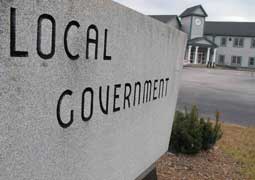
A joint meeting of the Portfolio Committee on Water and Sanitation, and the Standing Committee on Appropriations (Scoa) yesterday received a briefing from the Department of Water and Sanitation (DWS) on the Inter-Ministerial Task Team (IMTT) plan to resolve the outstanding debt owed by municipalities.
The IMTT was established to focus on electricity reticulation and distribution, but its mandate was expanded to include water debt issues on 12 December 2017. The department’s Acting Chief Financial Officer, Mr Paul Nel, told the meeting that municipal debt has, since the establishment of the IMTT, increased by R1.7 billion. The results of non-payment by municipalities have led to the disestablishment of both the Botshelo Water and the Bush Buck Ridge Water suppliers which raises major concerns for current suppliers such as Bloem Water, Lepelle Northern Water and Sedibeng Water which are owed substantially high amounts.
Mr Nel said that the Water Boards, who cannot refurbish their water services infrastructure is owed a total of R8.6 billion rand, of which R4.5 million is owed to DWS. This ultimately means that the DWS cannot maintain, rehabilitate and refurbish the dam infrastructure and deal with pollution and other related matters.
As at 30 September 2018, municipalities owed a total of R13.1 billion to Water Boards and the Water Trading Entity of which R9.3 billion or 71% is 120 days and older. Debt collection steps and strategies have this far included sending final demand letters, arranging meetings with municipalities, the department of Cooperative Governance and Traditional Affairs (CoGTA); and provincial and national treasuries in trying to find sustainable solutions.
The legal route taken by the IMTT has resulted in 63 summonses being issued and 7 court judgements granted. While the consequence of this has resulted in 47 municipalities paying their accounts, the committee was told that 135 municipalities has not been handed over since sporadic, but irregular payments made by these municipalities makes it difficult to take on this route.
While further proposals made by the IMTT include water restrictions to be made on defaulting municipalities, requesting the National Treasury to withhold portions of municipalities’ equitable share and revoking the water use authority licenses of municipalities, the joint meeting cautioned against water restrictions which will lead not only to a violation of people’s basic rights, but also higher costs to be carried by municipalities who will resort to water tanks as a means of supplying water. The IMTT has, as part of its report, a five-point plan which will soon be tabled in Parliament, this includes amongst others, the provision of pre-paid meters to assist municipalities in their regulations and the support of a government-wide campaign to encourage citizens to pay.
Members of the joint meeting emphasised the importance of Cogta taking responsibility of holding municipalities to account. They said that national and provincial departments should also be held accountable for paying their debts owed to municipalities since this further adds to the burden. The verification process of identifying government buildings that will be undertaken by the department of Public Works, as provided for the 2018 Division of Revenue Amendments Bill (DORA) Bill, should not be used an excuse for departments who utilise those buildings not to pay their municipal bills.
While members instructed the National Treasury to examine the prospects of withholding portions of the Conditional Grants given to municipalities as a means of recovering municipal debts, both the National Treasury and Salga cautioned against the use of conditional grans or the equitable share. National Treasury said that the DORA Bill is clear on what these funds should be used for and does not permit funds to be used for operational purposes at municipal level. Salga advised that using portions of the municipal equitable share was investigated as an option to pay Eskom in 2015, but this had led to heightened interstate conflict.
The Co-Chairperson of the meeting, Mr Mlungisi Johnson, said the meeting yielded many suggestions on how to deal with the crisis, one of these is to allow Water Boards to take over the function from municipalities, especially those that do not have the requisite capacity to manage this effectively. He said that the committees require periodic updates on the progress of the IMTT in their quest to resolve the challenges relating to municipal debt. Meanwhile, Co-Chairperson, Ms Yvonne Phosa, instructed the IMTT to include in their report, clear objectives and time-lines which can be used to monitored to track progress on this important issue.
By Felicia Lombard
15 November 2018

